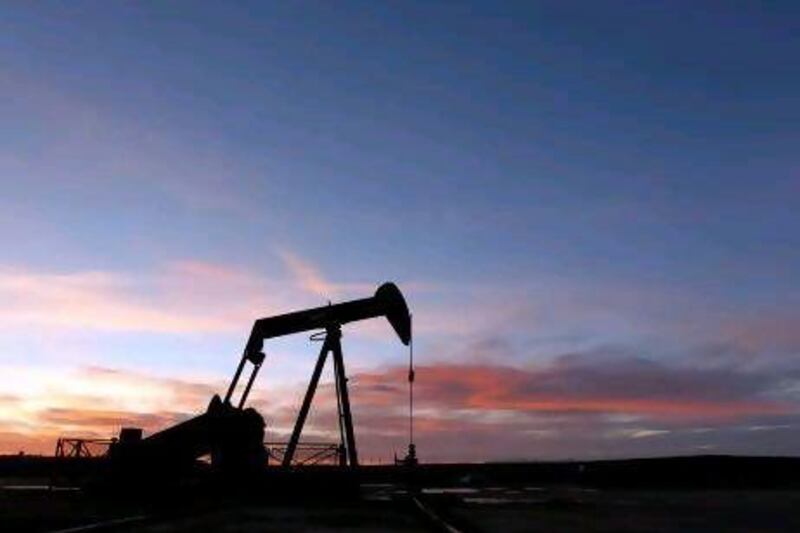Record production levels, weakening demand, and a declining risk profile in the Gulf have put an end to three consecutive monthly gains in oil prices, Opec said in its monthly report yesterday.
The Opec basket price, the average price of a barrel received by members of the exporters' club, dropped to US$118 last month, down almost 4 per cent from March.
The drop comes after Opec increased production to a record high of 32.2 million barrels per day (bpd) to ease market concerns that a fourth round of sanctions on Iran and an embargo on its oil would leave the markets under-supplied.
"Prices remain elevated by the risk premium associated with ongoing geopolitical factors. The decline … came with the start of the first month of the typically low demand season in the second quarter," Opec said in the report.
The basket price has continued to slide this month, standing at $109.85 on Wednesday. Analysts are sceptical over whether Opec will react to a drop in receipts by reducing its output over the coming months. "It's been clear to Opec producers for some time that Brent prices of $120 a barrel are not healthy for the global economy," said Bill Farren-Price,the chief executive of Petroleum Policy Intelligence. "For the time being, I think they will be fairly content with the correction we are seeing."
Prices rose on tensions between the western powers and Iran that raised the spectre of a blockade of the Strait of Hormuz, which would have choked off exports from Gulf producers.
United States sanctions aimed at the payment for Iranian oil came into effect at the beginning of the year and were accompanied by intense diplomatic pressure on customers in Asia to reduce imports. The European Union has imposed an embargo on all Iranian oil, which comes into effect in July.
Prices continued their ascent in the first three months of the year in spite of repeated assurances by Saudi Arabia, the only producer with significant spare capacity, to make up for any shortfall of Iranian exports. Ali Al Naimi, the Saudi oil minister, repeated this message during a visit to Japan this week.
Worries about Iran eased after Iran agreed to resume the dialogue over its nuclear programme, and talks are scheduled for this month, reducing the premium the market had placed on a potential major disruption.
In addition to a seasonal drop in demand, the world economy has taken a turn for the worse in recent months. European countries are falling back into recession, US economic data is looking increasingly worrisome, and even the seemingly indefatigable Chinese economy is growing more slowly.
As a result, demand has slackened and consumer countries have been able to build up significant reserves. Experts are divided over whether prices will continue to slide, with some predicting improved demand and continued supply-side problems.
"Prices should start … gradually moving higher through the coming few months, against a backdrop of improving fundamentals and stretched spare capacity," analysts at Barclays Capital said in a research note.





